PhD students Callum White and Esdras Paravizo present innovative research in the Houses of Parliament
Callum White and Esdras Paravizo, PhD students at Clare Hall, recently presented their research as finalists of the Parliamentary and Scientific Committee’s STEM for BRITAIN 2025, a significant poster competition and exhibition that has taken place in the Houses of Parliament since 1997.
Chaired by George Freeman MP, STEM for BRITAIN aims to provide members of both Houses of Parliament with insight into the “ground-breaking and frontier” research being conducted in UK universities by early-career researchers. The event receives sponsorship and attendance from prominent organisations, including the Institute of Physics, the Royal Academy of Engineering, the Council for the Mathematical Sciences, United Kingdom Research and Innovation, and the Isaac Newton Institute.
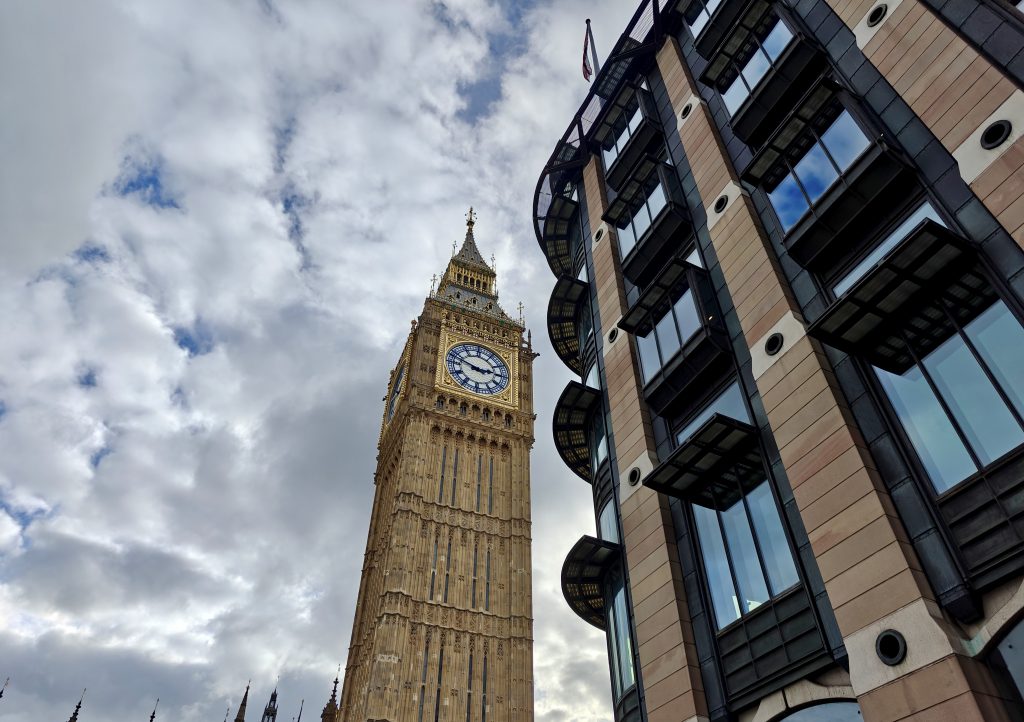
Callum’s poster, “Flow with the know: digitally decoding fluid concrete”, presented the stark reality of construction waste, with nearly 20% of total UK construction costs spent on fixing errors. A significant factor in this figure is the lack of understanding of the materials used on a daily basis.
Callum’s work at the Concrete Infrastructure Research Group focuses on improving knowledge of concrete behaviour. Concrete is a fluid that hardens over time to become a high-strength material, but Callum’s research explores a possible window of opportunity when the concrete is still fluid to detect and remedy issues before the concrete sets. His PhD has developed a digital test system for fluid concrete, which vastly improves upon the insights of existing site-based tests. The system delivers comparable insights to laboratory testing systems for a fraction of the cost, and drives improved quality control by providing a deeper understanding of the material’s behaviour. Members of Parliament were impressed with the idea and the significant scope for commercialisation.
“At the STEM for Britain event, I had a unique chance to engage directly with policymakers discussing the obstacles facing the construction sector, especially in achieving Net Zero goals. Members from both houses were genuinely interested in my research, particularly the potential of the proposed technologies to address long-standing issues. Visiting the Houses of Parliament was a fantastic experience. I especially appreciated discussing various topics with fellow early career researchers, ranging from the physics of nuclear reactors to innovative cancer therapies,” Callum said.
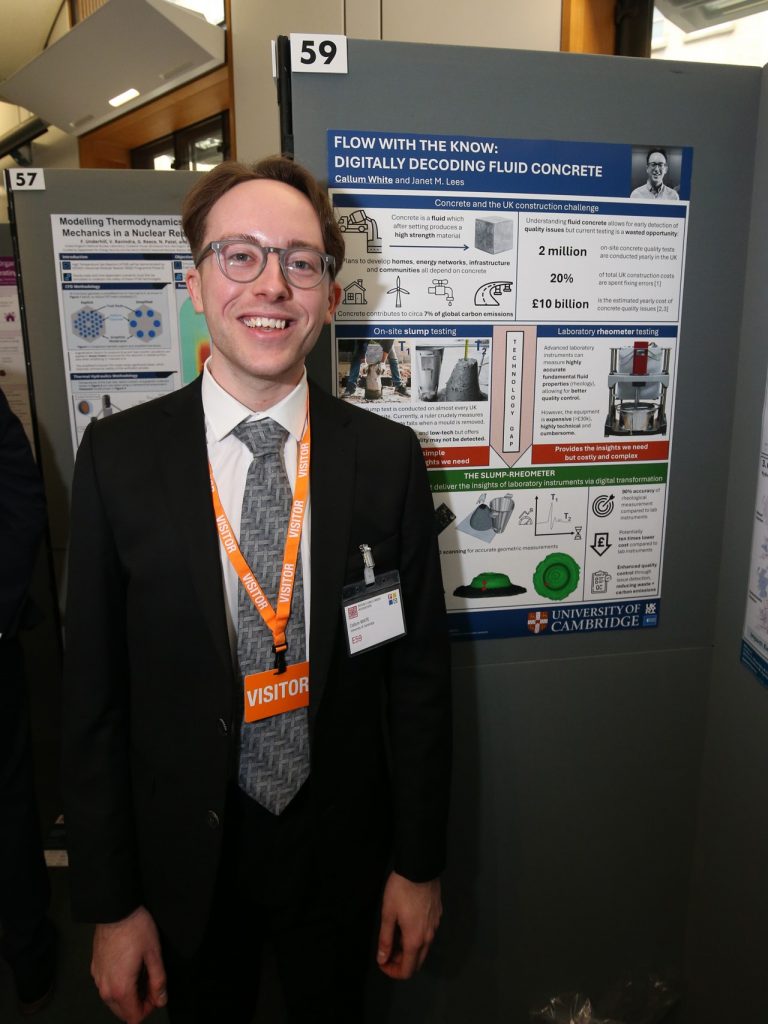
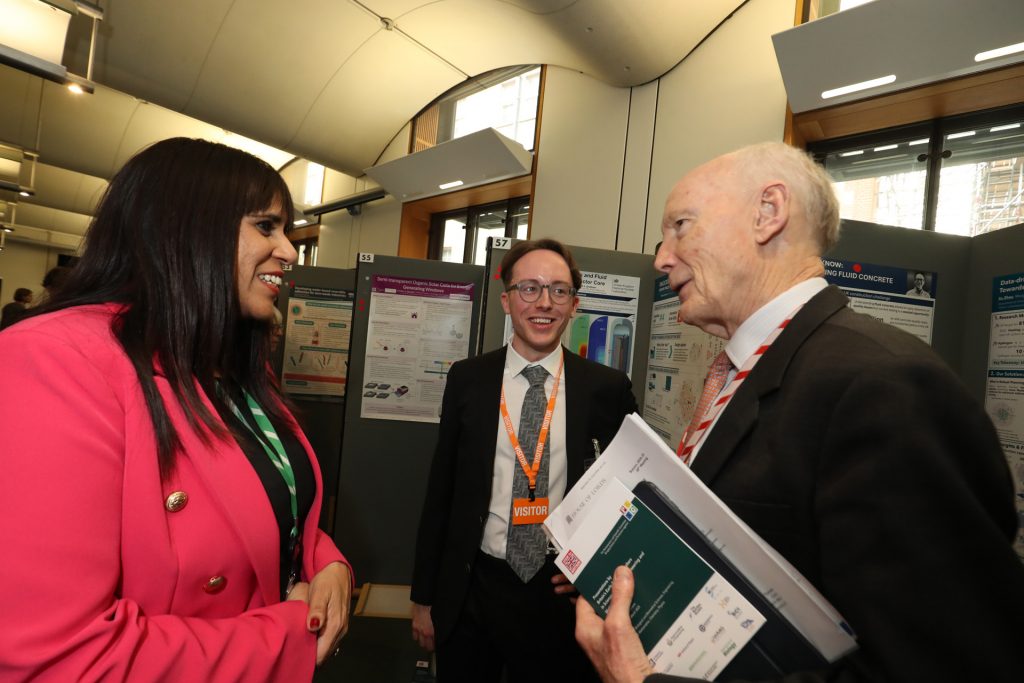
Esdras presented some of his work on engineering design and creativity in his poster, “Unlocking engineering creativity: design space visualisations to support innovation.” Esdras highlighted that while creativity and innovation are crucial for businesses and society, they have seen a decline in the UK in recent years. Against this backdrop, he presented a novel method for analysing and visualising alternative design solutions called DS-Viz.
This approach uses computational techniques and aims to aid engineers in exploring creative design spaces. Esdras also demonstrated how this method can be used in various contexts, from more constrained, technical problems to open-ended design challenges. Overall, his research not only provides insight into the breadth and similarity of ideas, but also has applications in education (through student feedback and learning scaffolding) and in practice (integrated into CAD software for real-time feedback). At Clare Hall, Esdras also runs the Creativity Special Interest Group, which further explores the topic of his poster.
“It was a great opportunity to engage with a broader audience and discuss the impact and importance of creativity and innovation for the UK’s engineering. STEM for Britain is a unique event that allows early career researchers to engage directly with policymakers and to get a glimpse of how they approach current challenges that the research community is grappling with. Developing science communication skills is a must to effectively bridge the university-public policy gap and I am glad to have had the chance to experience this in practice,” Esdras said.
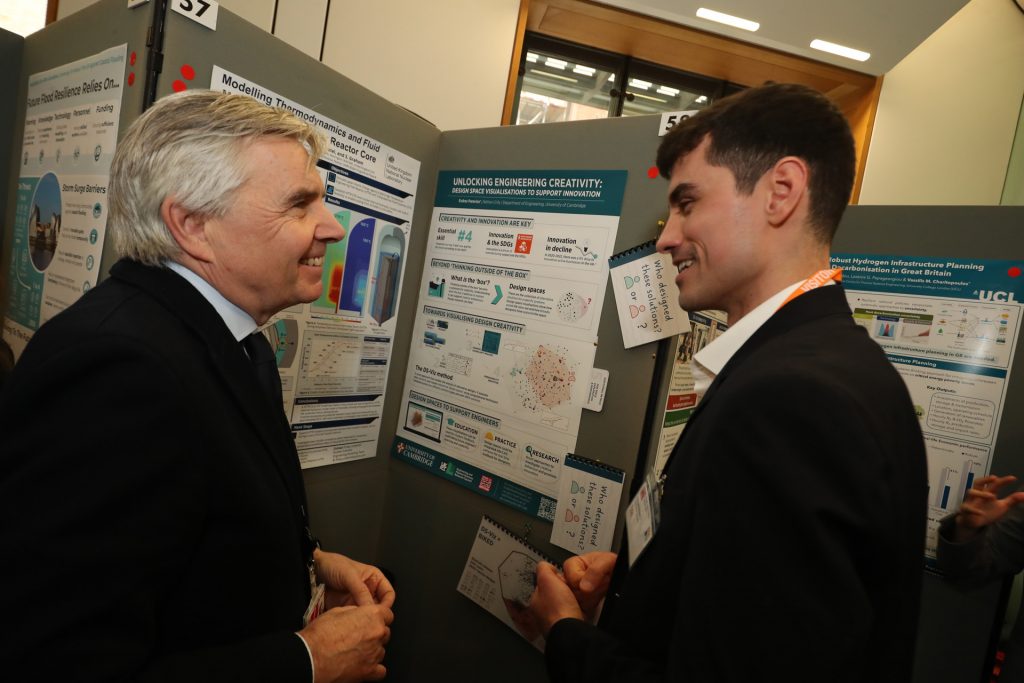
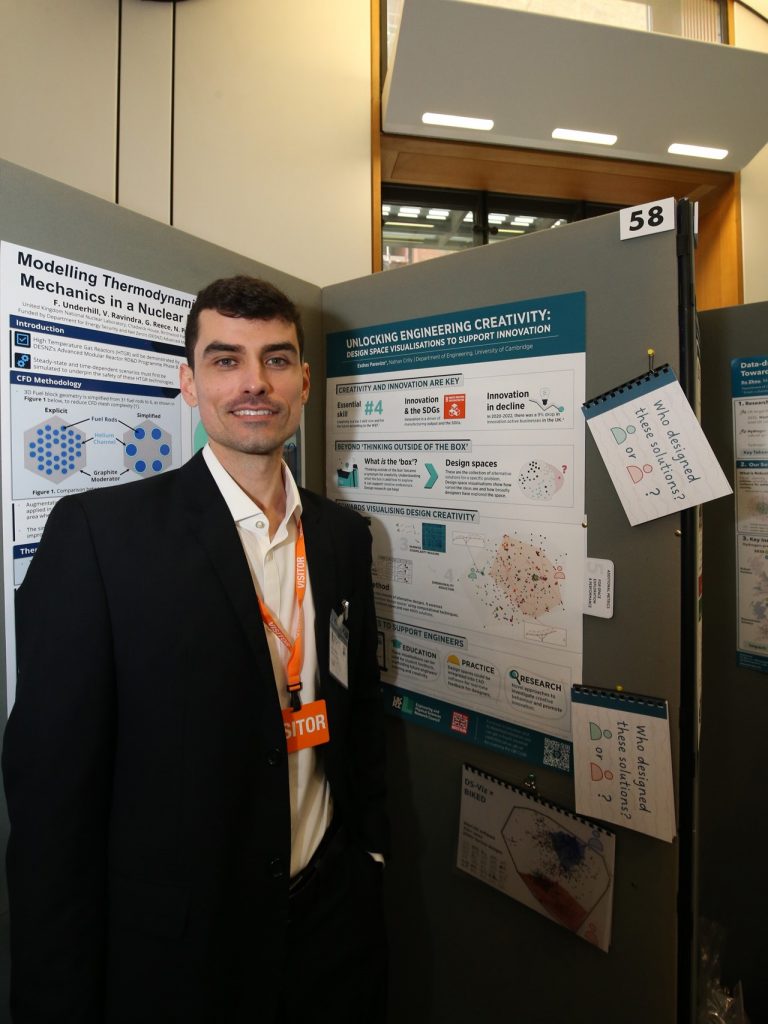
Congratulations to Callum and Esdras and we look forward to following their impactful research further!
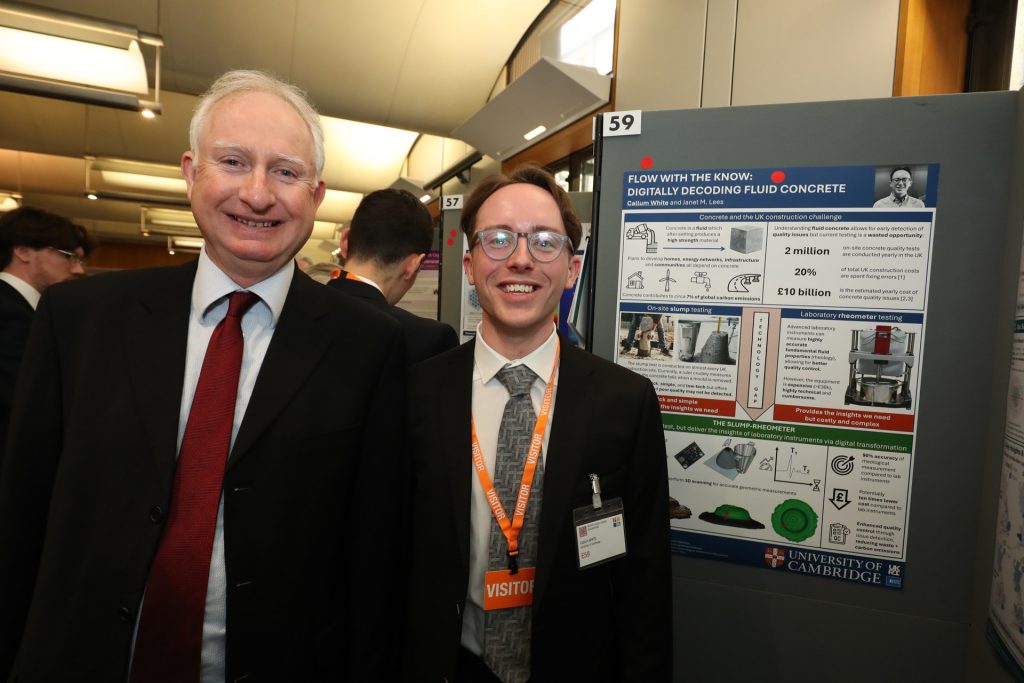
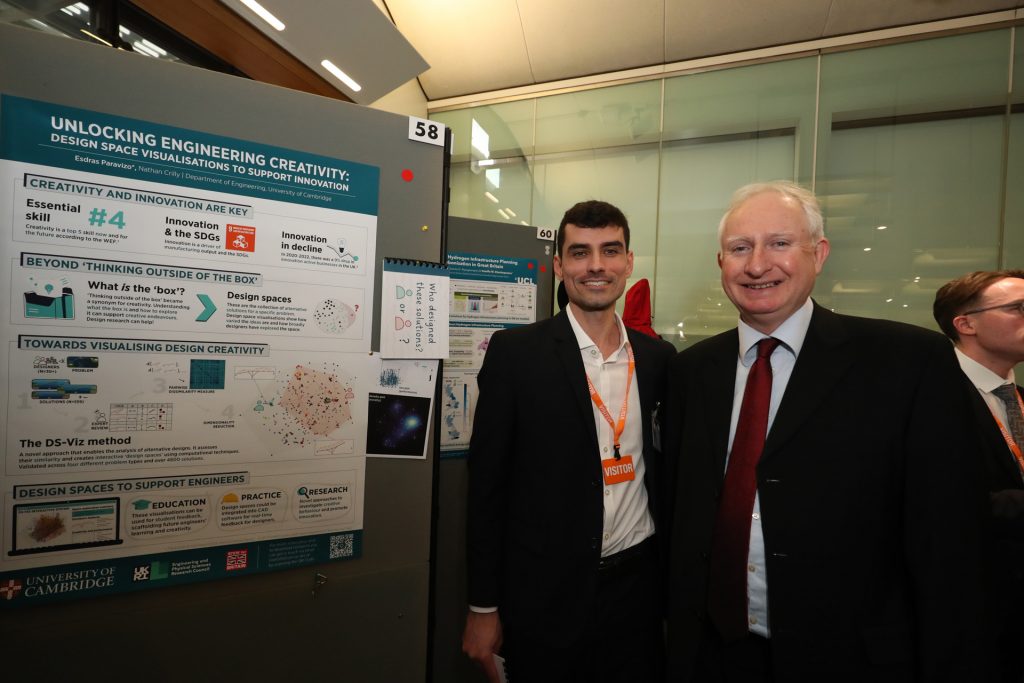
Callum and Esdras with Daniel Zeichner, Labour MP for Cambridge.
Photo credits: John Deehan Photography and the Parliamentary and Scientific Committee.